- Echanges et mise en réseau
- Connaissance et apprentissage
- Plaidoyer
- Nos thèmes
L’infection provoquée par le coronavirus s’est répandue dans le monde entier. C’est pourquoi, l’Organisation Mondiale de la Santé a décrété une pandémie. Alors que, dans les pays européens, la prise en charge médicale a déjà atteint ses limites de capacité, cette prise en charge sera impossible dans les pays du Sud si les chiffres enregistrent une hausse similaire. Dans ce dossier, nous présentons des informations de fond sur la situation dans les pays aux faibles ressources ainsi que des analyses politiques sur les conséquences pour la Santé globale. Et nous vous informons de la façon dont nos organisations membres et leurs organisations partenaires sont touchées par cette situation et comment elles la gèrent. (Photo: Coronavirus/EpicTop10.com/flickr, CC BY 2.0)
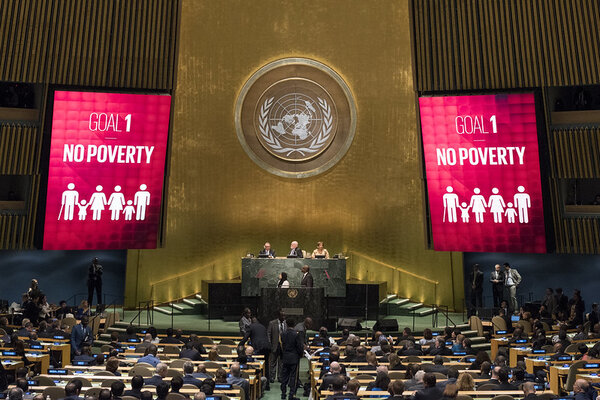
"The world was not on track to meet the 17 Sustainable Development Goals (SDGs) before COVID-19 struck, and now the challenge has been magnified many times over, according to a new flagship UN report that indicates countries must take ‘critical’ steps on the road out of the pandemic, during the next 18 months. The Sustainable Development Goals Report 2021, launched on Tuesday at UN Headquarters in New York, shows the toll that the COVID-19 pandemic has taken on the 2030 Agenda, as the landmark annual High-Level Political Forum (HLPF) officially got underway."

"We bring you this edition as these negotiations appear to be at a tipping point that would determine whether countries will be able to continue with these discussions or if this will fail." - Priti Patnaik
"WHO member states finally began text-based negotiations on a new Pandemic Agreement at WHO this week after more than two years since the process commenced. This comes far too late, with just over a handful of negotiating days left to conclude this process. As a result, the risk of a weak text emerging out of this process is nearly certain now."
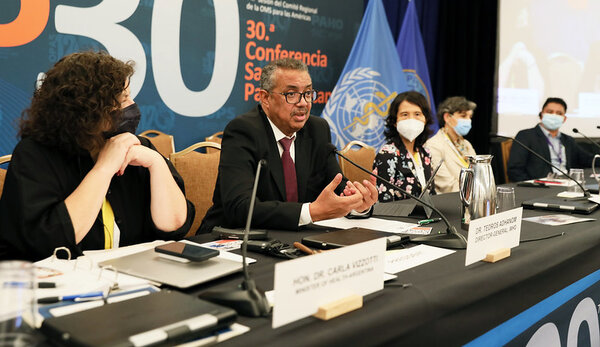
"“Get this done” – and if you disagree, don’t block consensus, was the heartfelt plea made by World Health Organization (WHO) Director-General Dr Tedros Adhanom Ghebreyessus to member states negotiating a pandemic agreement on Friday (3 May). Tedros was addressing the ‘stocktake’ in the middle of the final 10-day meeting of the intergovernmental negotiating body (INB), and it was clear that member states were nowhere close to the finish. “You are here for the same reason this organisation was created in the first place – because global threats demand a global response,” said Tedros."
![IHR Goes into Extra Time: Countries Make Definite Progress on the Amendments to the International Health Regulations, But Not Enough to Close a Deal [WG-IHR8]](/fr/assets/image-cache/uploads/images/news/2024/shray-chawla-Qqs8ppyxANw-unsplash.0a13a20e.jpg)
In this story we look at key, contentious provisions on equitable access of medical products and on financing – on which hinges the final deal on the IHR amendments.
"Negotiations on the International Health Regulations go down to the wire as countries were unable to complete the discussions at the end of the final meeting of the Working Group to amend the IHR, that concluded this week. Riding on a constructive approach and an overall positive momentum, countries made steady progress under the decisive leadership of co-chairs Abdullah Asiri and Ashley Bloomfield, but a few areas of contention remained as the clock ticked away towards the conclusion of the meeting on April 26, Friday. The working group decided to buy additional time to conclude the negotiations and are expected to meet on May 16-17 to complete the process. More time is needed to reach consensus on key contentious matters including on technology transfer, a dedicated fund, governance of an implementation committee, among other areas, diplomatic sources said."
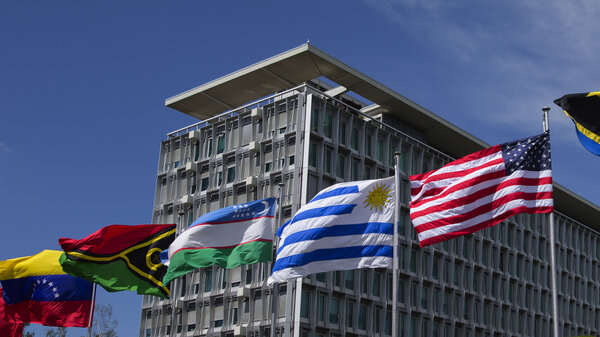
Ein Gastkommentar von Ilona Kickbusch
"Im Zusammenhang mit den Diskussionen der Weltgesundheitsorganisation (WHO) um ein Pandemieabkommen reden Kritiker von einer «WHO-Diktatur». Davon kann keine Rede sein, die Mitgliedländer sind denn auch weit davon entfernt, eine Einigung zu erzielen. Die Fehlinformationen zu den derzeitigen Verhandlungen am Sitz der Weltgesundheitsorganisation (WHO) in Genf nehmen zu. Besonders laut sind jene Stimmen, die einen drohenden Souveränitätsverlust der Nationalstaaten und eine «WHO-Diktatur» am nahen Horizont herbeireden. Sie wissen offenbar wenig über den Standardablauf internationaler Verhandlungen – oder wollen das gar nicht wissen."
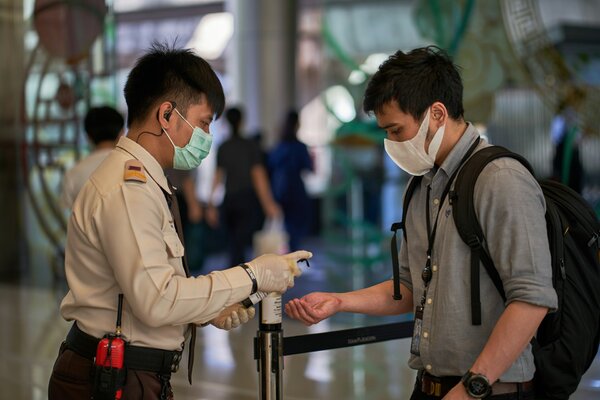
"The latest draft of the pandemic agreement, while deferring many operational issues, keeps equity hopes alive in many aspects – including by cementing in-principle agreements on a pathogen access and benefit-sharing (PABS) system, a global supply chain and logistics network and geographically diverse “capacities and institutions” for research and development. The streamlined 23-page draft was sent to World Health Organization (WHO) member states on Tuesday night ahead of the final meeting of the intergovernmental negotiations body (INB) on 29 April."
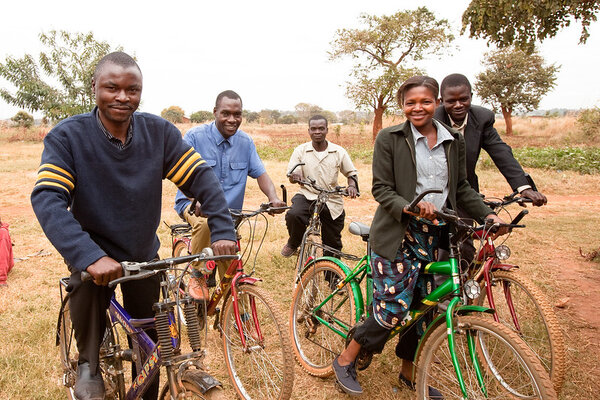
A Wakiso, un district d'Ouganda, l'hésitation à se faire vacciner a été grande pendant la pandémie de COVID-19. Malgré les efforts du ministère de la santé, aucun progrès n'a été réalisé. Cependant, en octobre 2022, un nouveau chapitre s'est ouvert lorsqu'une alliance impressionnante s'est formée. La Makerere University School of Public Health, la Rockefeller Foundation et Amref Health Africa se sont associées au ministère de la Santé et à l'administration locale du district de Wakiso. Leur mission était claire : former et renforcer les équipes de santé villageoises (VHT). Le résultat fut impressionnant et un exemple de solidarité communautaire : 1.000 VHT formées ont pu, grâce à un engagement sans faille, contrer la lassitude vis-à-vis de la vaccination, alimentée par la désinformation, et gagner la confiance de la population. Une vague de changement a été déclenchée.
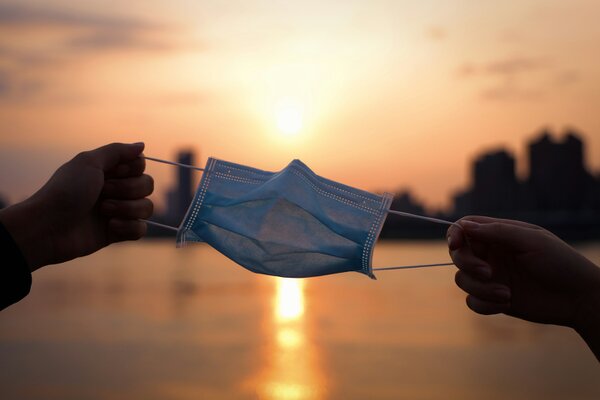
Toujours pas d'accord sur un accès facilité aux informations sur les agents pathogènes et les avantages qui en découlent (Pathogen Access and Benefits, PABS)
L'échange d'échantillons d'agents pathogènes et de données de séquences génétiques (GSD) ainsi qu'une distribution équitable des contre-mesures salvatrices (MCM) en cas de pandémie, telles que les diagnostics, les médicaments et les vaccins, sont essentiels pour la prévention, la préparation et la réponse aux pandémies à l’échelle mondial. Cependant, ces questions, connues collectivement sous le nom de "Pathogen Access and Benefit Sharing (PABS)", restent toutefois un point de désaccord central dans les négociations en cours sur le traité de l’OMS sur les pandémies. Les auteurs soulignent la nécessité de contributions financières obligatoires et d'autres avantages pour un tel système afin de garantir une distribution équitable des médicaments et des vaccins pendant une pandémie. Ils proposent des améliorations pour actualiser le texte de négociation et soulignent l'importance d'une forte implication des pays en développement dans les négociations. La création d'un fonds dit « PABS » devrait pas seulement servir à soutenir le « PABS », mais aussi à financer l'écart dans la distribution en temps voulu des MCM aux pays à faible et moyen revenus, car il s'agit d'une partie importante du partage des bénéfices attendu par les gouvernements des PFRM compte tenu de l’iniquité dont ils ont été victimes pendant la pandémie de COVID-19. En outre, les engagements devraient inclure le fait que ceux qui ont accès aux ressources biologiques et aux DGS (Maladie du stockage du glycogène) à des fins commerciales devraient verser des contributions supplémentaires aux pays à faible et moyen revenus pendant une pandémie, en fonction des besoins. Les auteurs avertissent qu'un « PABS » faible et inefficace est aussi bon qu'un « PABS » inexistant. Il ne reste que quelques semaines avant l'assemblée plénière de mai. Un échec des négociations serait une catastrophe après toutes les grandes promesses.
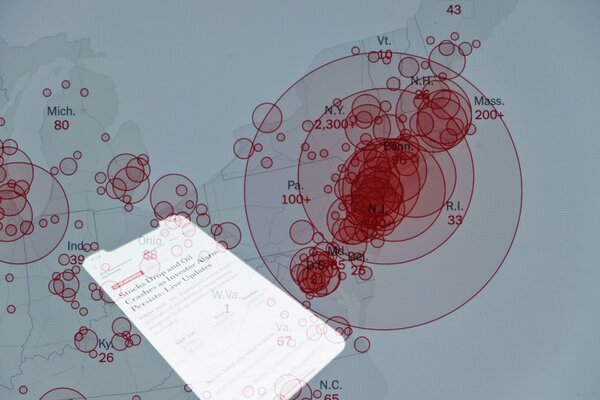
"The fractious pandemic agreement talks – supposed to end with an agreement on Thursday (28 March) – have limped into extra time, with World Health Organization (WHO) member states resolving to hold an additional intergovernmental negotiating body (INB) meeting from 29 April to 10 May. The World Health Assembly (WHA), which begins on 27 May, is supposed to adopt the agreement, intended to be a global guide on how to prevent, prepare for, and respond to, pandemics. (...) At the briefing at the end of Thursday’s talks, which started almost four hours later than scheduled, INB co-chair Roland Driece said that “there is no champagne”. “We had long intensive discussions, but we have not succeeded in concluding this meeting,” added Driece."

Interview mit Martin Leschhorn Strebel, Geschäftsführer Medicus Mundi Schweiz
"Um sich gegen globale Gesundheitskrisen besser zu wappnen, arbeitet die Weltgesundheitsorganisation WHO an einem globalen Pandemievertrag. Massnahmengegner aus der Corona-Zeit befürchten den Verlust der Unabhängigkeit. Taucht ein neuer bösartiger Erreger auf, ist eine weitere Pandemie durchaus möglich. Schon während der Corona-Pandemie machte sich die Weltgesundheitsorganisation WHO daran, einen weltweiten Pandemievertrag zu erarbeiten. Inzwischen liegt nach sieben Verhandlungsrunden ein Textentwurf vor, über den im Mai 2024 an der 77. Weltgesundheitsversammlung der WHO in Genf abgestimmt werden soll."
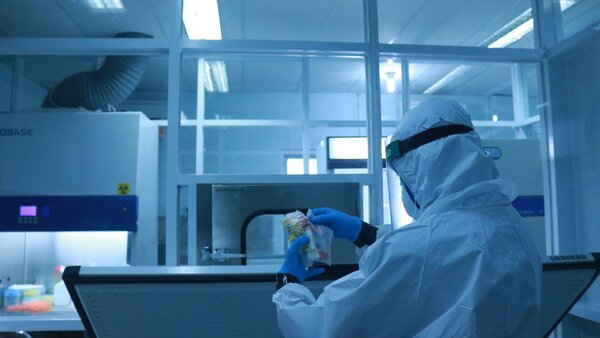
Next week, countries are going to be engaged in another two-week marathon to hash out the details of the pandemic agreement.
"The pandemic agreement negotiations are entering the home stretch, but NGOs and global health observers are still not happy with the latest draft of the agreement. The revised draft, dated March 7, was circulated to partners over the weekend. It comes after a two-week marathon session of the Intergovernmental Negotiating Body, or INB, that ended March 1, and one week ahead of its scheduled final session that starts on March 18, where member states are expected to engage in text-based negotiations for nine days. According to observers and NGOs, the text remains weak on compliance, and text on the hot-button issue of pathogen access and benefit sharing still does not equate to equal benefits for low- and middle-income countries."
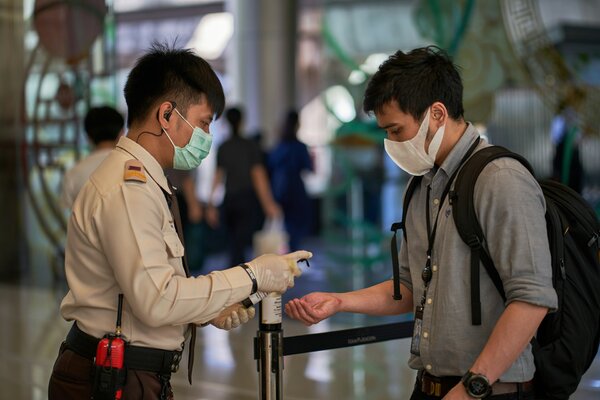
Far from making amends, a handful of powerful countries are sabotaging the best chance to translate the lessons from the COVID-19 pandemic into legally binding commitments that will protect us all.
"The Intergovernmental Negotiating Body (INB), which is tasked under WHO with drawing up an international instrument on pandemic prevention, preparedness, and response, will sit for the 9th and final time from March 18–29. In the 2 years since it first met, hundreds of hours and unknown costs have been spent, but the political impetus has died. The convention is now at a critical juncture: the final text for countries to ratify is due to be presented at the World Health Assembly in May. With only limited days of negotiation left and a long way to go to secure a meaningful agreement, it is now or never for a treaty that can make the world a safer place."
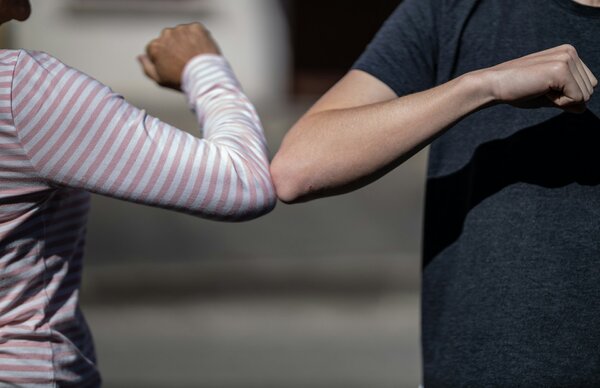
ABS emerges as a cornerstone of potential outcome. By Priti Patnaik & Nishant Sirohi
"There is a distinct shift in the mood. Despite continuing divergences on key issues from technology transfer, financing, to access and benefit sharing, some countries are beginning to see a small possibility of concluding negotiations for a new Pandemic Instrument. However, the near-impossibility of reaching consensus on complex, technical matters within such a short time period, looms large in the hallways of the World Health Organization. With the number of remaining formal negotiating days ahead of May 2024 dwindling to single digits, WHO member states, nevertheless, continue to be keen on concluding talks to reach agreement in addition to finalizing amendments to the International Health Regulations. This emerging optimism could suggest two possibilities: a more likely one that could result in a watered-down agreement to meet the deadline, essentially a face-saving exercise; a second scenario - albeit somewhat rose-tinted, is that they would actually be able to put together a reasonable set of commitments that broadly meets the needs of most countries."
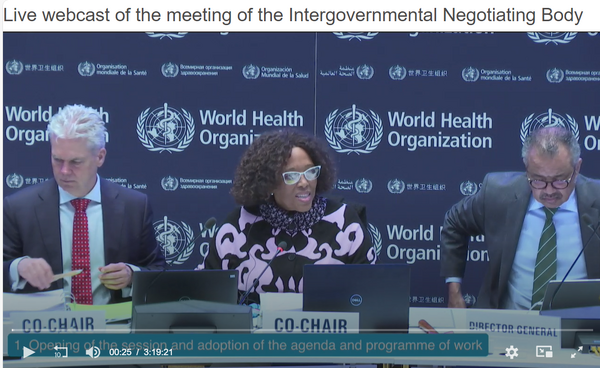
Strong Push for Access and Benefits Sharing Mechanism. By Priti Patnaik & Nishant Sirohi
"Scores of developing countries pulled their weight in a bid to push for equity provisions in a new Pandemic Agreement at the opening of the latest meeting of the Intergovernmental Negotiating Body (INB), set up to establish a new Pandemic Agreement. Despite strong intentions, it looks increasingly difficult that objectives to ensure equity in pandemic preparedness and response, will translate into any serious binding obligations, given limited political will and time. WHO member states are meeting for a two-week marathon meeting where they continue to discuss a proposal for a negotiating text put together by the Bureau of the INB, that to an extent reflects some of the deliberations conducted in smaller groups on a number of different key provisions."
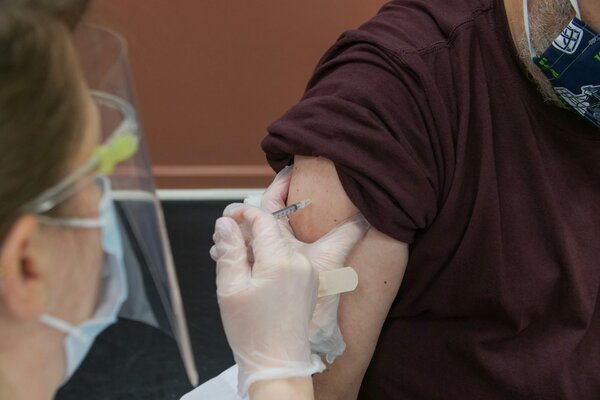
"Health Policy Watch has obtained portions of the latest draft of the pandemic agreement that member states will negotiate over at the eighth intergovernmental negotiating body (INB) starting on Monday, 19 February. At the time of publishing, only member states had access to the draft, although a number of civil society organisations recognised as stakeholders have requested a draft from the World Health Organization (WHO) Bureau that is overseeing the negotiations for some time."
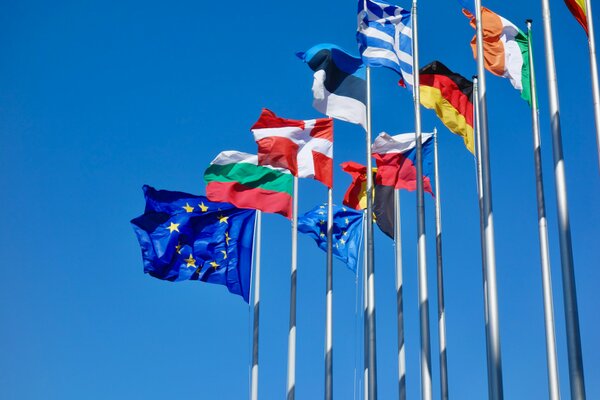
"More than 40 former heads of state and leading global health advocates have urged world leaders not to waste a unique opportunity to save millions of lives as negotiations stall on a new global pandemic accord. In an open letter, published four years after the World Health Organization declared covid-19 a global health emergency, the 40 influential figures warned that the world’s leaders were looking increasingly unlikely to agree on a new, legally binding agreement intended to prevent and prepare for a future pandemic."
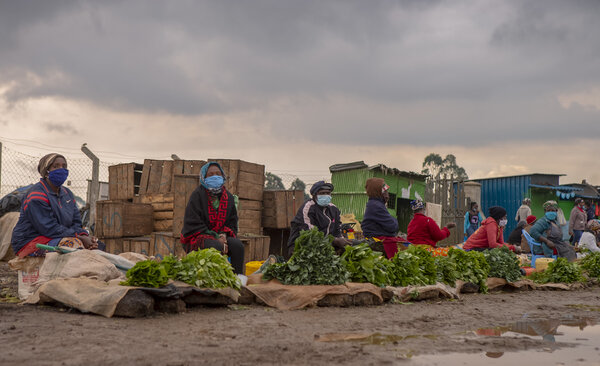
Le Temps "Les pays africains sont dans l’ensemble peu touchés par le Covid-19. La jeunesse de la population et le climat freinent sans doute la transmission du coronavirus mais l’évolution de la pandémie est incertaine, d’autant que le confinement de la population est intenable." (Photo: Social Distancing in the Market/World Bank Photo Collection/flickr, CC BY-NC-ND 2.0)
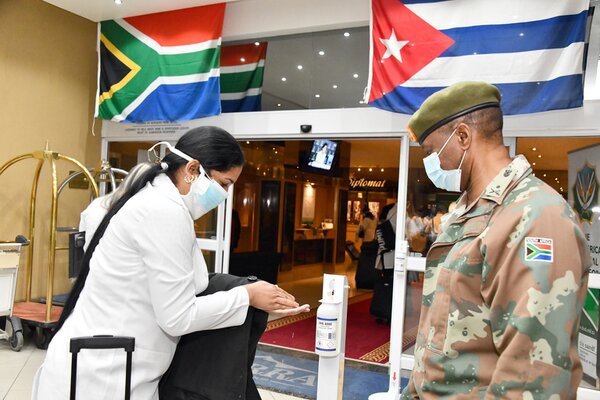
The ICU capacity that is critical to managing covid-19 complications is severely limited in much of the region, warn Edgar Asiimwe and Saraswati Kache
British Medical Journal (bmj) "The covid-19 pandemic has undoubtedly challenged our previously held assumptions about global disease epidemiology. Classic public health teaching promulgates the theory of a prevailing epidemiologic transition—one in which the burden of disease morphs from predominantly infectious causes to non-communicable causes as countries industrialize. That theory has now been turned on its head as public health campaigns in industrialized countries promote basic hygiene, while restrictive lockdowns upend regular life. For many, these developments feel like regression to a hitherto forgotten era, with industrialized nations now living the contemporary experience of many in developing countries." (Photo: 217 Cuban Health Specialists arriving in South Africa to curb the spread of COVID-19/GovernmentZA/flickr, CC BY-ND 2.0)
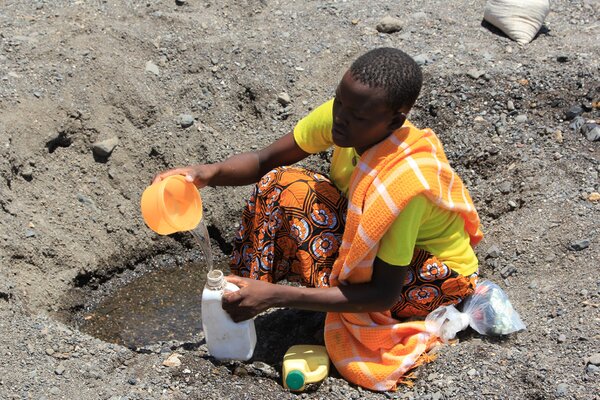
Interview with Eric Comte, GHF Director
Heidi.News "The Geneva Health Forum, created in 2006 in Geneva, was forced to postpone its eighth annual conference, from March to 16-18 November due to the COVID-19 pandemic. But that has not prevented the Forum’s leadership, including GHF Director, Dr Eric Comte, from responding to the unprecedented challenge created by the crisis. From a small and modest gathering of booths and stands, the Geneva Health Forum has grown into an international event with a strong array of scientific sessions. Geneva Solutions interviewed Comte to hear about the role GHF is playing in the present emergency, and his views gleaned from years in epidemic management." (Photo: DFID - UK Department for International Development/flickr, CC BY 2.0)
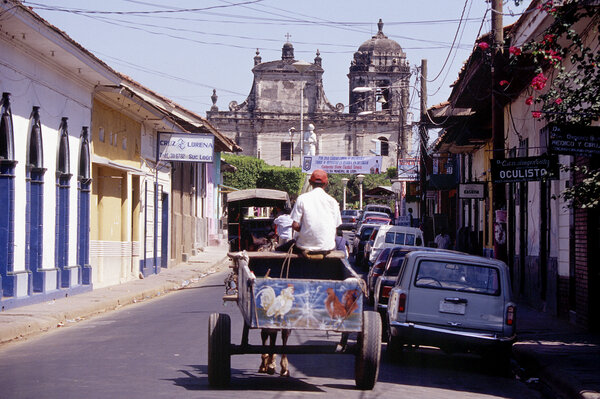
Med in Switzerland #18 avril 2020
MMS Ce sont principalement des touristes européens, puis des voyageurs venus des États-Unis, qui ont apporté le coronavirus dans cette région, où l'épidémie à la fin du mois de mars 2020 en est encore largement à ses débuts. Des systèmes de santé fragiles et partiellement privatisés dans des pays pour la plupart très endettés, dont une grande partie de la population n'a pas d'emploi formel et dont les systèmes de sécurité sociale sont faibles, sont de mauvais augure pour les mois à venir. (Leon Nicaragua. Photo: Massimo Pedrazzini)
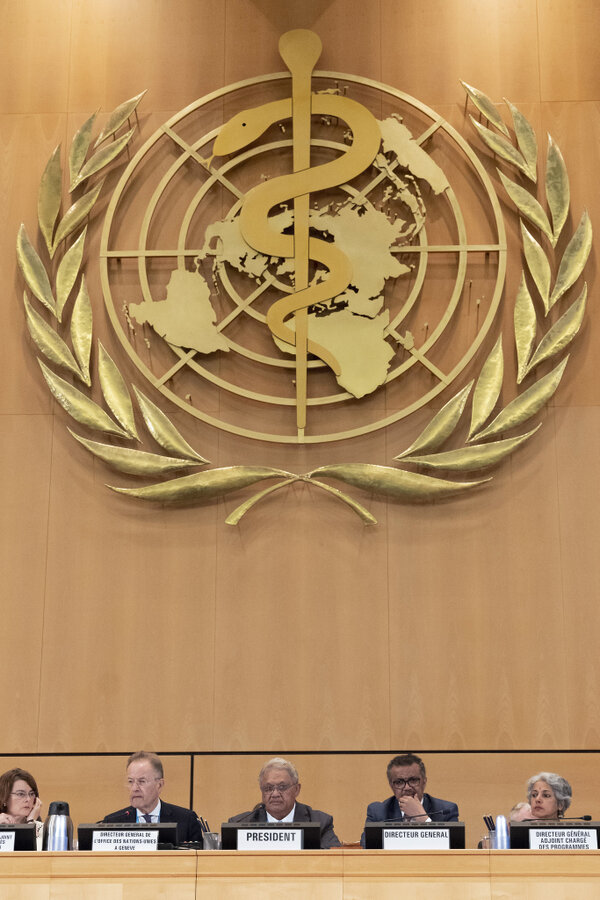
World Health Organisation (WHO) Brazzaville/ Cairo, 7 April 2020 – The number of confirmed COVID-19 cases in Africa has risen to more than 10 000 and caused more than 500 deaths. While the virus was slow to reach the continent compared to other parts of the world, infection has grown exponentially in recent weeks and continues to spread. Reaching the continent through travellers returning from hotspots in Asia, Europe and the United States, Africa’s first COVID-19 case was recorded in Egypt on 14 February. Since then a total of 52 countries have reported cases. Initially, mainly confined to capital cities, a significant number of countries in Africa are now reporting cases in multiple provinces. (Photo: UN Geneva/flickr, CC BY-NC-ND 2.0)
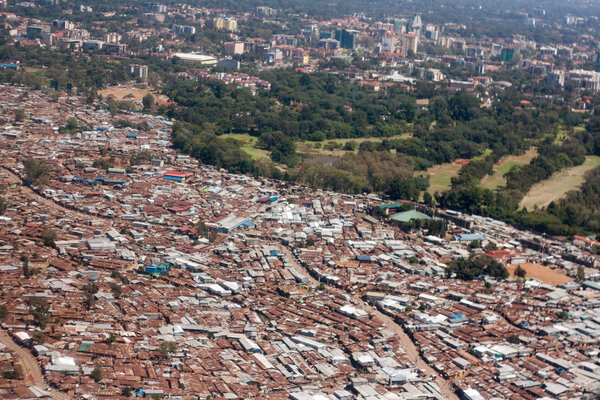
The New Humanitarian "NAIROBI - Africa was one of the last regions to register a confirmed coronavirus case, but COVID-19 is now spreading fast. There have so far been more than 9,400 confirmed cases in 52 countries, with no sign yet of a slow down. Governments initially responded with travel bans and flight restrictions. As coronavirus cases have climbed, most African countries have implemented social distancing measures – including lockdowns and curfews – to try and contain the secondary spread within communities. But in cities like Nairobi, two-thirds of the 4.4 million people are crammed into informal settlements that lack basic services, and entire families can live in a single room." (Photo: Ben Cappellacci/flickr, CC BY 2.0)
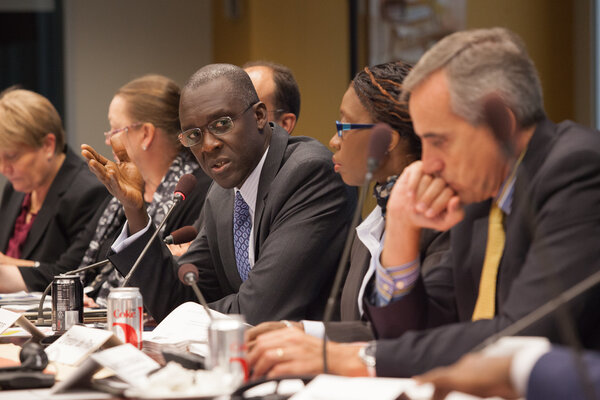
Private sector solutions don’t always fit public sector problems
The Washington Post "How do the world’s poorest nations tackle a global health crisis like the current novel coronavirus outbreak? After the 2014 Ebola epidemic in West Africa, the World Bank launched the Pandemic Emergency Financing Facility (PEF) — an insurance-based mechanism to raise money for pandemic responses in low-income countries through “catastrophe bonds” and derivatives. The coronavirus pandemic is exactly the situation for which the PEF was designed. Most of the PEF-eligible countries are reporting cases of covid-19 (the disease caused by this coronavirus) and urgently require billions of dollars to scale up their public health response. So far, the PEF has yet to pay out a single dollar. Here’s what happened and why." (Photo: World Bank Photo Collection/flickr, CC BY-NC-ND 2.0)

Débat en ligne
Club suisse de la presse "Dans les pays en développement, le pire sur le front du coronavirus reste à venir. Mais déjà aujourd’hui les mesures de confinement prises par divers gouvernements du Sud, notamment en Afrique, ont un impact dévastateur sur la vie et l’économie de pays particulièrement vulnérables. En début de semaine, l’ONU a lancé un cri d’alarme en demandant que les Etats du Nord débloquent 2500 milliards de dollars d‘aide en faveur du Sud."
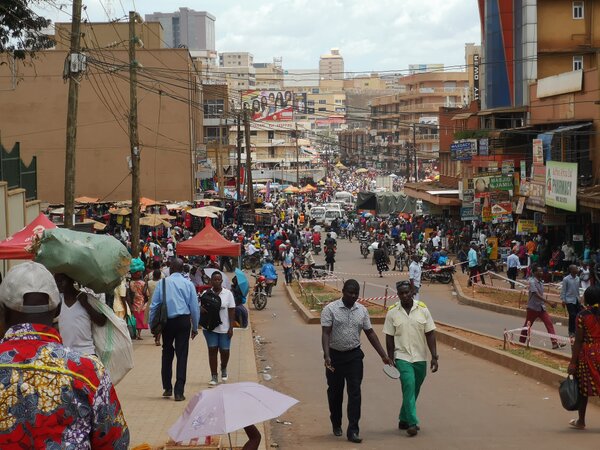
SRF Schweizer Radio und Fernsehen Utilisé dans les pages listant des éléments et les pages de résultats de recherche. "In Afrika wächst die Sorge vor einer ungebremsten Ausbreitung des Virus. Denn die Ärmsten können ihm kaum entfliehen. (...) Ärzte und Pflegekräfte nähern sich Kranken nur in Schutzanzügen, vor den Spitälern reiht sich Sarg an Sarg, das Gesundheitssystem steht am Rande des Kollaps: die Schreckensbilder der Ebola-Epidemie in Westafrika sind uns Europäern derzeit auf schauerliche Weise präsent. Nach konservativen Schätzungen der WHO starben von 2014 bis 2016 über 11'000 Menschen an der Infektionskrankheit. Die Dunkelziffer dürfte weit höher sein." (Foto: MMS)
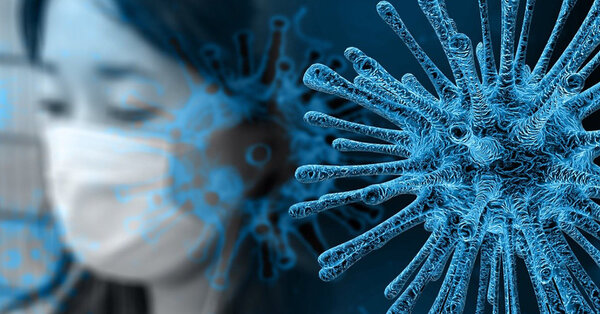
International Health Policy Blog "WHO Director-General Tedros Adhanom Ghebreyesus: “We’re not just fighting an epidemic; we’re fighting an infodemic. Fake news spreads faster and more easily than this virus, and is just as dangerous. ” (Munich Security Conference on Feb 15, 2020). (...) In the face of limited resources and weak health systems, the COVID-19 pandemic presented sub-Saharan Africa with new challenges: the urgent need for diagnostics, care and treatment for SARS-CoV-2 infected patients, the increased burden on health systems and collapsing economies. (...) To win this virus war and impending social disruption, there is a need for effective risk communication and community engagement (RCCE) – an essential component of health emergency and response activities." (Photo: Prachatai/flickr, CC BY-NC-ND 2.0)
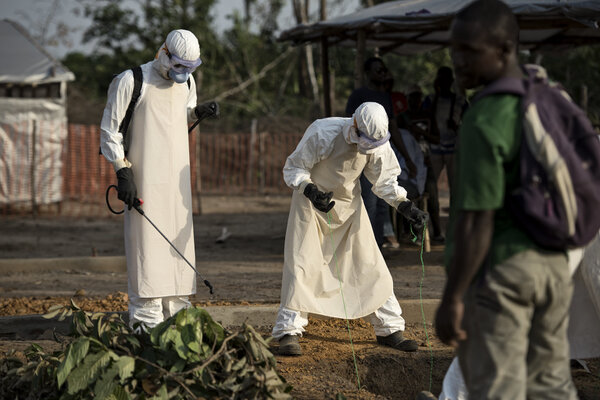
Argument
Foreign Policy (FP) "A poor country succeeded in fighting off Ebola. Wealthier countries should replicate Liberia’s strategy in combating the coronavirus. (...) Those first days of the 2014 Ebola outbreak and Liberia’s response from that point on can offer important lessons to European and North American governments in light of the World Health Organization’s announcement that the new coronavirus is now a pandemic—and the evidence in rising caseloads from Madrid to London to New York." (Photo: USAID U.S. Agency for International Development/flickr, CC BY-NC 2.0)
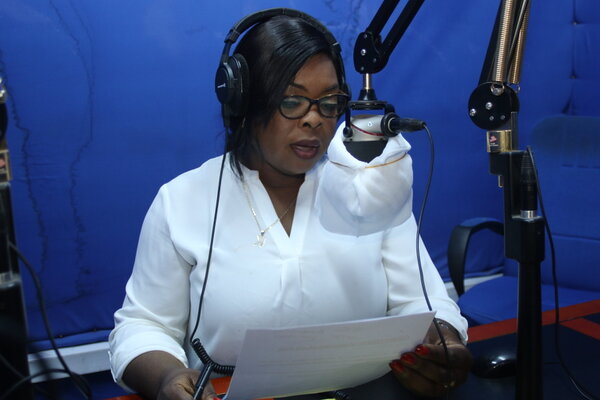
Coronavirus in Afrika
tagesschau.de "Auf dem afrikanischen Kontinent gibt es immer mehr Corona-Infizierte. Experten fürchten, ein Ausbruch wie in Europa, werde die fragilen Gesundheitssysteme überlasten - mit schlimmen Folgen." (Foto: Protecting shared Microphones/ MONUSCO/ Radio Okapi/flickr, CC BY-SA 2.0)
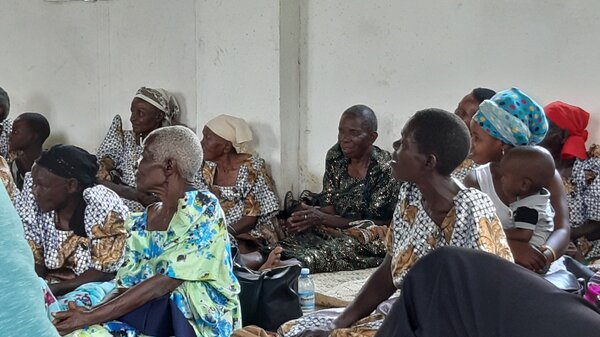
British Medical Journal (bmj) "A global expert group on older people might be useful: The global response to covid-19 has been described as being “too little, too late.” National and international efforts are now gathering pace. Those involved in these efforts can draw on a rapidly growing body of research, much summarised in regularly updated guidelines published by national and international authorities, covering the latest information on the virus, its mode of transmission, its spread, and the susceptibility of different groups within the population. Although many aspects of this new infection remain uncertain, one thing is already clear. The risk of dying from covid-19 increases with age, and most of the deaths observed are in people older than 60, especially those with chronic conditions such as cardiovascular disease." (Photo: MMS)

Produced by Training and Research Support Centre for the Regional Network for Equity in Health in east and southern Africa
Equinet Africa "This brief summarises and provides links to official, scientific and other resources to support an understanding of and individual to regional level responses to the epidemic of ‘novel coronavirus’, also known as COVID-19.On January 30, 2020, the World Health Organization declared the coronavirus outbreak a Public Health Emergency of International Concern (PHEIC) and on March 11 2020 it declared it a pandemic. The International Health Regulations (IHR) 2005 term a PHEIC an extraordinary eventthat constitutes “a risk to other States through the international spread of disease”, requiringa coordinated international response."
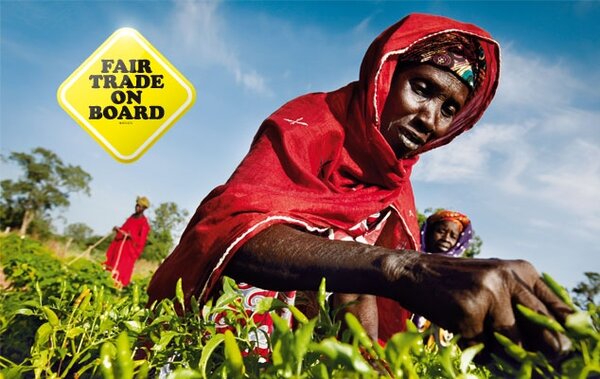
What are the channels of economic impact we can expect from COVID-19?
Center for Global Development (CGD) "As travelers cancel flights, businesses ask workers to stay home, and stocks fall, a global health crisis becomes a global economic crisis. In any health crisis, our first concern is (and should be) with the health of those affected. More than 4,000 people have died worldwide and more than 113,000 cases have been confirmed in over 110 countries. But unfortunately, the economic impacts also have dramatic effects on the wellbeing of families and communities. For vulnerable families, lost income due to an outbreak can translate to spikes in poverty, missed meals for children, and reduced access to healthcare far beyond COVID-19. While the spread in the United States and Europe absorbs much of the media coverage, confirmed cases from Bangladesh to Brazil, from Cameroon to Costa Rica, and in many other low- and middle-income countries mean that many of the economic impacts may affect the world’s most vulnerable populations." (Photo: Trade for Development/flickr, CC BY-NC-ND 2.0)
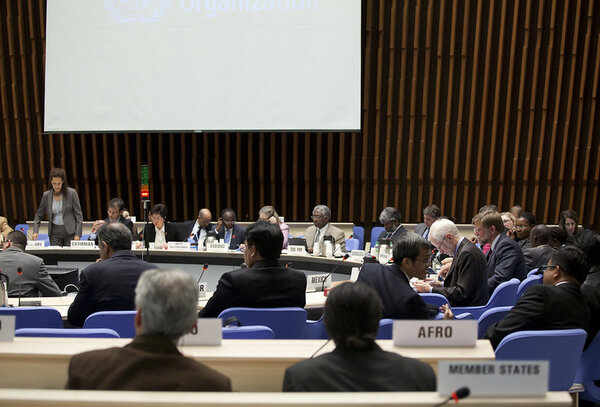
Une tribune de Sara (Meg) Davis de Global Health Centre, du Graduate Institute à Genève
Le rapport du comité indépendant investit par l’OMS pour contrôler la gestion mondiale de la pandémie de COVID-19 et élaborer des recommandations pour la maîtrise de la pandémie est décevant, c’est ainsi que Sara (Meg) Davis le résume. Le rapport nomme certes des problèmes majeurs et des inégalités globales. Mais les recommandations ne répondent pas aux immenses défis. Ainsi, le comité pousse à faire don d’un milliard de doses vaccinales aux pays à revenu faible et moyen. Toutefois, étant donné que 10 milliards de doses vaccinales sont nécessaires pour endiguer le virus, ceci tient plutôt de l’aumône que de l’équité en matière de vaccin. Les violations brutales des droits de l’homme en rapport avec le COVID-19 sont à peine mentionnées, tout autant que la non-divulgation chinoise des données sanitaires. Il est frappant de constater l’aversion contre les réalités politiques sensibles qui constitue le fil rouge de l’ensemble du rapport.
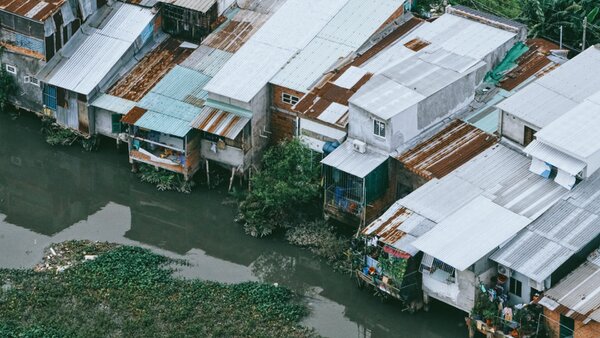
Le dernier rapport d’Oxfam dévoile dans quelle mesure la pandémie de COVID-19 renforce les inégalités sociales
Le fait que la pandémie va faire grimper les inégalités dans le monde entier, et ce avec des effets très pernicieux, préoccupe énormément. À vrai dire, la Banque mondiale s’était attendue à ce qu’en 2020 le nombre de personnes extrêmement pauvres baisse de 31 millions. Au lieu de cela, on estime à 88 millions le nombre de personnes supplémentaires dont la limite de revenu est passée à moins 1,90 dollar par jour. Désormais, leur nombre total est à nouveau aussi élevé qu’en 2015. Et, comme le développe le rapport actuel d’Oxfam, le nombre de personnes confrontées à la pauvreté pourrait atteindre à nouveau le niveau pré-pandémique dans une décennie seulement. La pandémie a démontré que la perte d’un mois de salaire plonge la plupart des personnes vivant sur la planète dans la misère. Contrairement à cela, la fortune des personnes les plus riches a augmenté de plusieurs milliards dans le monde entier, et ce, malgré la pandémie. Après une brève chute, le soutien sans précédent des gouvernements de nombreux pays a fait bondir la bourse des valeurs et, ce faisant, a fait gonfler la fortune des milliardaires tandis que l’économie réelle connaît une importante récession.

Des experts et des expertes éminents en matière de santé alertent sur le fait que, sans systèmes de santé performants, la pandémie actuelle ne peut pas être maîtrisée. Ils critiquent l’action à courte vue de pays à haut revenu qui, avec l’initiative globale «Accélérateur ACT» investissent surtout dans l’achat de vaccins mais peu dans les systèmes de santé. L’Accélérateur ACT (dispositif pour accélérer l'accès aux outils de lutte contre le COVID-19), une initiative fondée, entre autres, par l’Organisation Mondiale de la Santé (OMS), la Commission européenne et le gouvernement français en avril 2020 – œuvre à accélérer le développement et la répartition équitable des tests de dépistage du COVID-19 et des vaccins contre ce dernier – a négligé de soutenir les systèmes de santé fragiles. Il manque des milliards de dollars pour investir dans les vêtements de protection, l’oxygène, le personnel médical ou les chaînes du froid des pays à faible revenu.
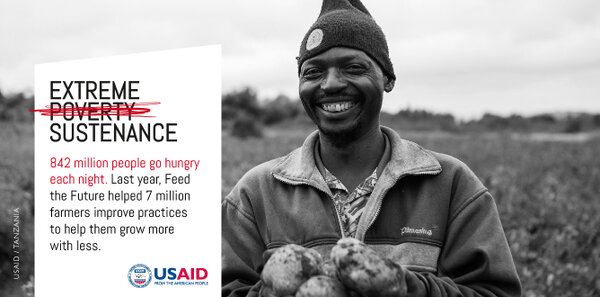
British Medical Journal (bmj) "Principles and methods drawn from decades of work showing that lower socioeconomic status is associated with poorer health should guide efforts to monitor and mitigate the impact of the covid-19 pandemic argue Geoffrey Anderson and colleagues." (Photo: USAID U.S. Agency for International Development/flickr, CC BY-NC-ND 2.0)
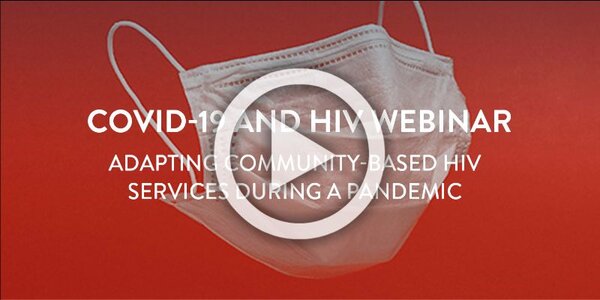
Webinar Recording 28/05/2020
International AIDS Society "The International AIDS Society (IAS) is organizing a series of webinars on the topic of COVID-19 and HIV to discuss the pandemic and its impact on people living with HIV. Through these webinar sessions, the IAS would like to provide an opportunity for discussion around the latest science, in addition to sharing learning and best practices in relation to COVID-19 and HIV between countries at different stages of the pandemic, especially in lower- and middle-income countries. The webinars are recommended to HIV professionals, government representatives working in the field of HIV, public health specialists, programme managers, service providers, civil society representatives and members of organizations supporting key and vulnerable populations." (Photo: IAS)
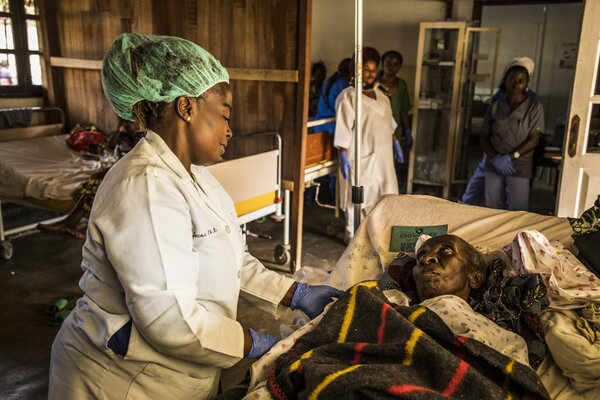
Health Policy Watch A new survey by WHO has found that the COVID-19 pandemic has ‘severely’ disrupted the delivery of services to prevent and treat non-communicable diseases (NCDs) in almost 80% of countries surveyed – or 122 out of 150 countries. This is of “significant concern” WHO said on Monday in a statement, because people with NCDs also are more vulnerable to COVID-19 infection and death. And even prior to the pandemic, some three quarters of all deaths worldwide were due to NCDs. (Photo: World Bank Photo Collection/flickr, CC BY-NC-ND 2.0)
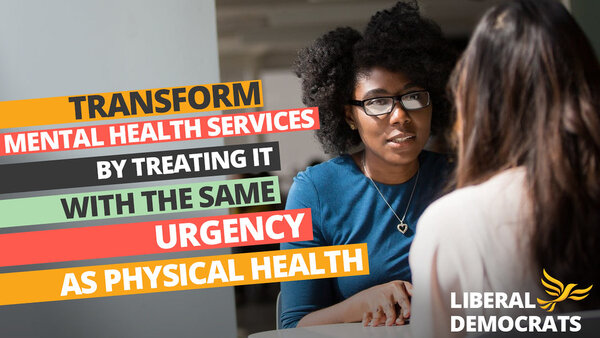
Policy Brief
United Nations "Although the COVID-19 crisis is, in the first instance, a physical health crisis, it has the seeds of a major mental health crisis as well, if action is not taken. Good mental health is critical to the functioning of society at the best of times. It must be front and centre of every country’s response to and recovery from the COVID-19 pandemic. The mental health and wellbeing of whole societies have been severely impacted by this crisis and are a priority to be addressed urgently." (Photo: Liberal Democrats/flickr, CC BY-ND 2.0)
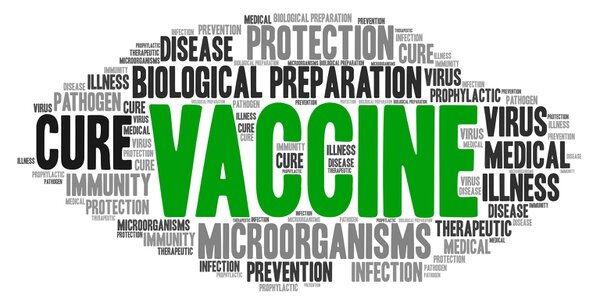
Efforts to dilute world health assembly resolution on open licensing decried as ‘appalling
The Guardian "Ministers and officials from every nation will meet via video link on Monday for the annual world health assembly, which is expected to be dominated by efforts to stop rich countries monopolising drugs and future vaccines against Covid-19. As some countries buy up drugs thought to be useful against the coronavirus, causing global shortages, and the Trump administration does deals with vaccine companies to supply America first, there is dismay among public health experts and campaigners who believe it is vital to pull together to end the pandemic." (Photo: EpicTop10.com/flickr, CC BY 2.0)
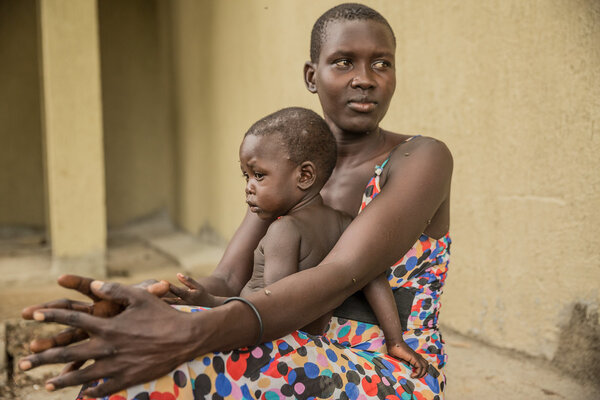
Devex "A few short months ago, we were talking about the 2020s as the “decade of delivery” for the Sustainable Development Goals. Now, we are facing a “lost decade” as the COVID-19 pandemic threatens to roll back the hard-won gains of the last 30 years. Can we prevent a great reversal in development? That is the question hanging over millions of the world’s most vulnerable and disadvantaged children. The health, the hopes, and, in some cases, the lives of these children are on the line — not that you would know it from the international response." (Photo: UNICEF Ethiopia/flickr, CC BY-NC-ND 2.0)
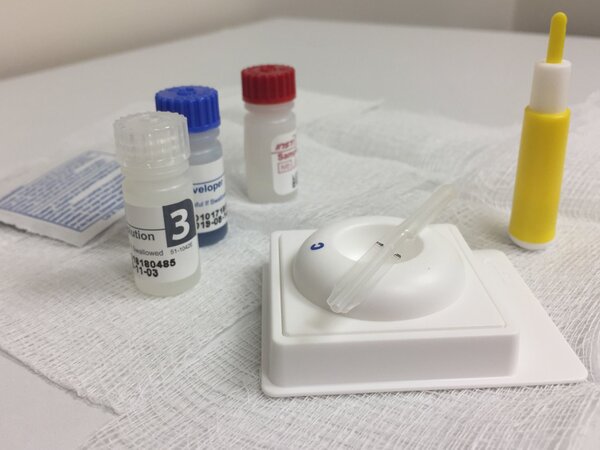
Sexual health experts see in lockdown restrictions a ‘once-in-a-lifetime’ chance
The Guardian “In the war against any infectious virus,” says Dr Alan McOwan, “You’re trying to win various battles. You have to keep clobbering it from every direction you can.” That’s true for coronavirus, he says, as well as for other viral conditions. An HIV specialist at London’s 56 Dean Street sexual health clinic, McOwan sees similarities between Covid-19 and HIV. Both are viruses without a working vaccine, you can be infectious without knowing it, and both rely mostly on close human contact to spread." (Photo: NIAID/flickr, CC BY 2.0)
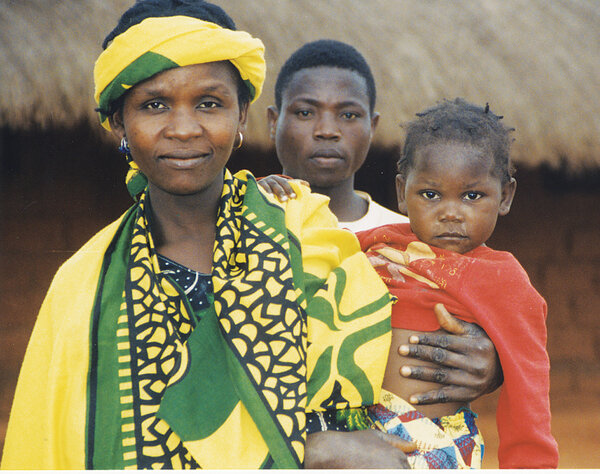
United Nations Population Fund (UNFPA) "UNFPA aims to achieve three world-changing results by 2030, the deadline for achieving the Sustainable Development Goals. These are: Ending unmet need for family planning, ending gender-based violence including harmful practices such as female genital mutilation and child marriage, and ending all preventable maternal deaths. COVID-19 pandemic could critically undermine progress made towards achieving these goals." (Photo: Bread for the World/flickr, CC BY-NC-ND 2.0)
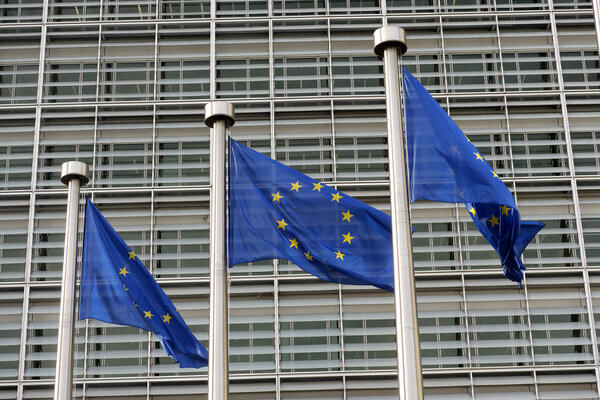
European Commission "Today, the Commission registered €7.4 billion, equivalent to $8 billion, in pledges from donors worldwide during the Coronavirus Global Response pledging event. This includes a pledge of €1.4 billion by the Commission. This almost reaches the initial target of €7.5 billion and is a solid starting point for the worldwide pledging marathon, which begins today. The aim is to gather significant funding to ensure the collaborative development and universal deployment of diagnostics, treatments and vaccines against coronavirus." (Photo: LIBER Europe/flickr, CC BY 2.0)
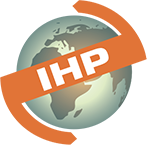
International Health Policy Blog "According to Remco van de Pas, SDG3 on health and wellbeing has been irrelevant to address global challenges in this area. The futility of this SDG and limits of the World Health Organization are today painfully clear in the approach of the covid-19 pandemic. Although the crisis was not unexpected, WHO member states have insufficiently invested and left much scope for charities and private investors. The author scrutinizes global public health policies and advocates the creation of a new Jubilee Campaign for indebted countries."

Will the Global Fund uphold its principles in this emergency context?
www.aidspan.org "Early March, the Global Fund to fight AIDS, TB and malaria recognized the threat that the novel coronavirus that causes the new coronavirus disease (COVID-19) poses to the health systems of its beneficiary countries. The Global Fund issued a first guidance note allowing countries to redeploy underutilized assets, repurpose grant savings and, in exceptional cases, reprogram up to 5% funding from existing grants to fight COVID-19. The Secretariat estimates the costs of these flexibilities at $500 million. A month later, the Global Fund announced an additional $500 million to a newly created COVID-19 Response Mechanism."
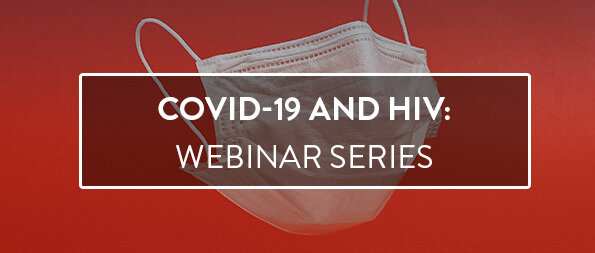
COVID-19 and HIV: Webinar series
International AIDS Society "The International AIDS Society (IAS) is organizing a series of webinars on the topic of COVID-19 and HIV to discuss the pandemic and its impact on people living with HIV. Through these webinar sessions, the IAS would like to provide an opportunity for discussion around the latest science, in addition to sharing learning and best practices in relation to COVID-19 and HIV between countries at different stages of the pandemic, especially in lower- and middle-income countries. The webinars are recommended to HIV professionals, government representatives working in the field of HIV, public health specialists, programme managers, service providers, civil society representatives and members of organizations supporting key and vulnerable populations."
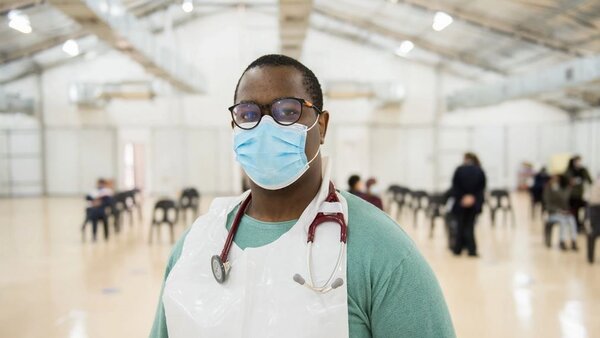
Press Release
African countries and an international network of research institutions, including the Swiss Tropical and Public Health Institute (Swiss TPH), have joined forces to launch the largest COVID-19 clinical trial in mild-to-moderate outpatients in Africa. The ANTICOV clinical trial aims to respond to the urgent need to identify treatments that can be used to treat mild and moderate cases of COVID-19 early and prevent spikes in hospitalisation that could overwhelm fragile and already overburdened health systems in Africa.
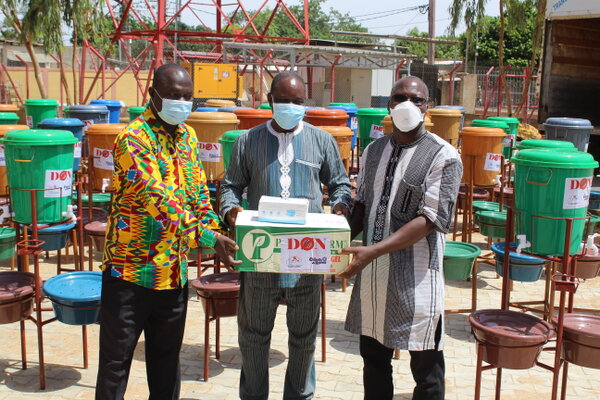
Avec Video
Enfants du Monde Le 9 mars 2020, le Burkina Faso enregistrait ses premiers cas de COVID-19. Le pays est aujourd’hui l’un des plus touchés d’Afrique avec 766 cas confirmés et 52 dccès à la date du 13 mai 2020. 9 des 13 régions sanitaires que compte le pays sont touchées par l’épidémie. Pour soutenir le Ministère de la Santé du Burkina Faso dans la lutte contre le COVID-19, Enfants du Monde fournit du matériel de protection pour les prestataires de soins et informe la population, en collaboration avec notre partenaire local IPC/BF (Initiative Privée et Communautaire pour la santé et la riposte au VIH/Sida au Burkina Faso) et avec l’appui financier de nos donateurs et de la Direction du développement et de la coopération (DDC) suisse. (Photo: Enfants du Monde)
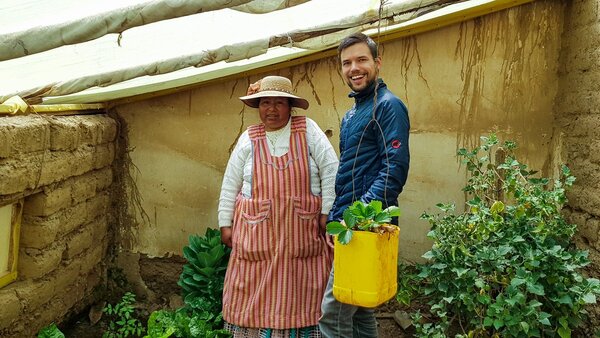
Comundo Comment s'en sortir dans une grande ville comme El Alto / La Paz durant la crise du Coronavirus ? Économie informelle au point mort, violence domestique, système de santé défaillant : Jérôme Gyger relate la situation sur place et explique son projet d'agriculture urbaine, qui donne une partie de la solution. (Photo: Avec Doña Bartolina Ticona dans sa petite serre de production biologique à El Alto/ © Comundo)
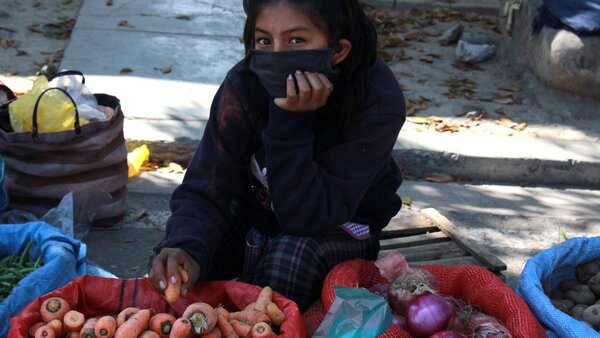
Comundo Überforderung, fehlende Betreuung und steigende Gewalt dominieren Städte wie Cochabamba in Bolivien in Zeiten der Coronakrise. Dabei geht vergessen: Kinder sind nicht nur Opfer, sondern besitzen auch Potential zur Krisenbewältigung in Familie und Gesellschaft. (Foto: Ein Mädchen, das an einem Markt in der Nähe von Quillacolo (ausserhalb Cochabamba) trotz Quarantäne versucht ihren Lebensunterhalt zu verdienen. | Lizeth Salazar Bustos/AVE)
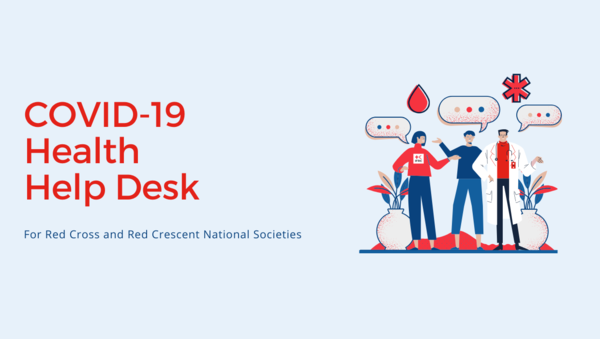
Global Disaster Preparedness Center (GDPC) "National Societies' and volunteers' roles will change through the progression of the COVID-19 pandemic in their respective countries and communities, based on which activities to support public health, clinical and health systems activities are likely to be most impactful in their context and with their outbreak dynamics. This Health Help Desk Website provided by the International Federation of Red Cross and Red Crescent Societies (IFRC) offers three functions: 1) Huge resource library of all available health documents, guidelines and research. Scroll down the page and click on the bold themes, and further information will open. 2) Pose any question you have to the helpdesk. They try to answer asap 3) Any questions and related answers are available on the Q&A site. Please check the Q&A section, before you pose a new question to the help desk." (Photo: © GDPC)
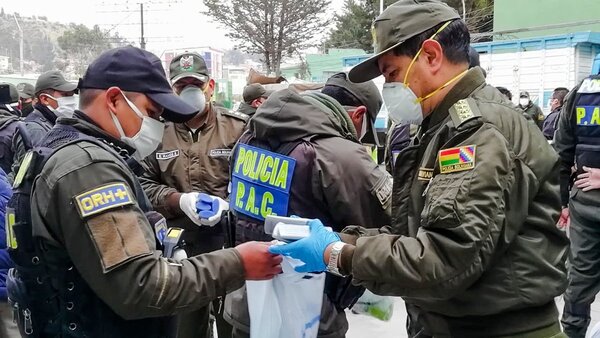
Comundo Viele leiden aktuell unter den weltweiten Quarantäne-Massnahmen. Doch es gibt Menschen, die zu ihrem Eigenschutz zuhause bleiben möchten, dies aber nicht dürfen. Die Psychotherapeutin und Comundo-Fachperson Bitia Vargas unterstützt staatliches Sicherheits- und Gesundheitspersonal in der Krise und gewährt uns einen Blick hinter die Kulissen der bolivianischen Polizei. (Im Bild die bolivianische Polizei mit einer Einheit für Bio-Sicherheit. ©ABI )

rts.ch "Tous les vendredis, "CQFD" reçoit un homme ou une femme de science pour parler de son travail et de ses recherches. Aujourd'hui, Sarah Dirren a invité Vinh-Kim Nguyen, médecin urgentiste, professeur dʹanthropologie et de sociologie de la santé et co-directeur du Centre de santé globale au Graduate Institute de Genève (IHEID), professeur au Département de médecine sociale et préventive de lʹUniversité de Montréal et Research Fellow au Max-Planck Institute for Social Anthropology, à Halle, en Allemagne. - Une heure pour faire connaissance avec ce spécialiste dont les activités se partagent entre action sur le terrain et analyse plus globale des crises sanitaires, du VIH au Covid-19, en passant par Ebola." (Photo: IHEID)

Graduate Institute Geneva - Global Health Centre "Gian Luca Burci and Jennifer Hasselgard-Rowe examine the rights-related measures that have been adopted by the Swiss Confederation and the Cantons to respond to the current Covid-19 crisis. The main regulatory avenue that Switzerland’s Federal Council has used in its response to the COVID-19 pandemic has been to issue federal orders effective across the entire Swiss territory." (Photo: GIG_GHC)

Département fédéral des affaires étrangères (DFAE) "Depuis le début de la pandémie de Covid-19, on assiste, dans certains pays, à une augmentation du risque de violence domestique, dû aux mesures de confinement, et à un accès limité aux services de protection. C'est pourquoi le conseiller fédéral, Ignazio Cassis, a signé aujourd'hui, avec 58 autres pays une déclaration conjointe visant à renforcer la protection des femmes et des filles en cette période de COVID-19. La déclaration commune appelle à trouver des réponses internationales pour protéger la santé des femmes et de leur intégrité physique, mais aussi à assurer une pleine participation de ces dernières à tous les processus de décision dans le cadre de la pandémie. Elle appelle enfin tous les acteurs (y compris le secteur privé) à unir leurs efforts pour fournir une aide d'urgence aux pays les plus vulnérables et à rendre pleinement effectif l'engagement mondial en faveur de l'accès universel aux soins."
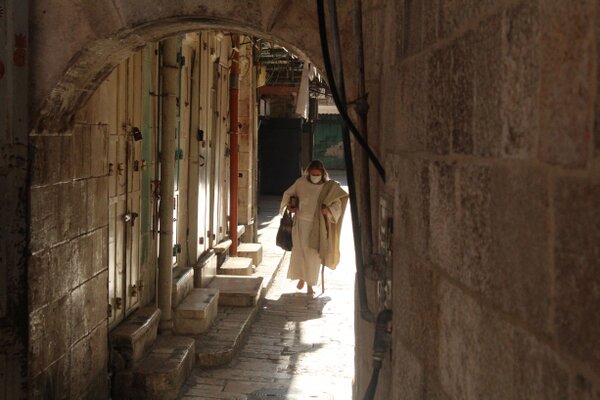
Secours aux Enfants Bethléem Linda Bergauer est suissesse et travaille depuis près d’un an pour le Caritas Baby Hospital à Bethléem. Le coronavirus a bouleversé son quotidien. Le récit d’une expérience très personnelle durant la crise du coronavirus à Jérusalem et Bethléem. (Photo: Joan Mas Autonell)

Prévention coronovirus
Suisse-Santé-Haïti La pandémie de Coronavirus prend une dimension particulière dans un pays comme Haïti. Suisse-Santé-Haïti fait le maximum pour prévenir la propagation du virus notamment par la diffusion d'une vidéo de prévention dans ses centres de santé. Nous avons sollicité notre personnel soignant ainsi que certain membres de notre organisation pour réaliser ce message d’information en créole. Nous espérons aussi que beaucoup d’Haïtien.e.s s’enverront cette vidéo par whatsapp.
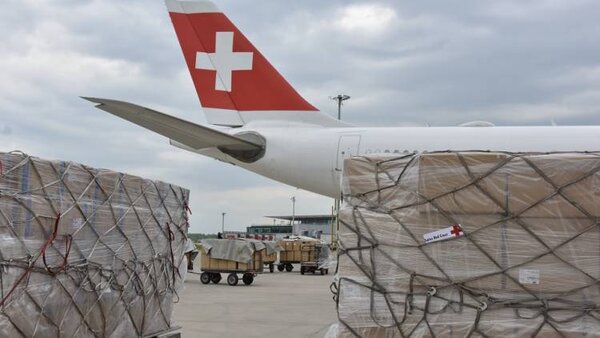
Pandémie
La Croix-Rouge suisse (CRS) Le soutien apporté par la Croix-Rouge suisse (CRS) à la Confédération dans le cadre de la lutte contre la pandémie de coronavirus se concrétise notamment par l’importation depuis la Chine de volumes importants de masques, de combinaisons de protection et de gants. Les transports ont été confiés à la compagnie aérienne Swiss, qui a à ce jour opéré sept vols de Shanghai à Zurich. (Photo: Déchargement des équipements médicaux commandés par la CRS à l’aéroport de Zurich © SWISS)
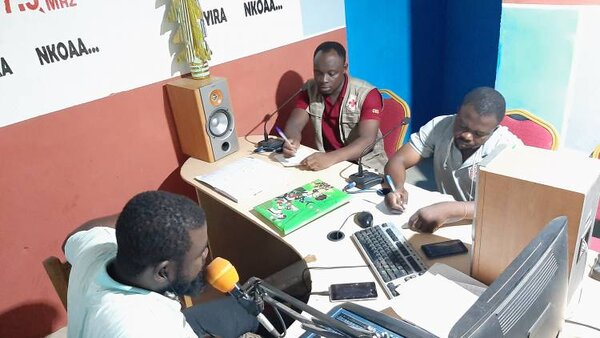
Pandémie de coronavirus au Ghana
La Croix-Rouge suisse (CRS) La Croix-Rouge suisse (CRS) appuie les efforts de ses Sociétés sœurs dans la trentaine de pays où elle intervient. Au Ghana, des émissions de radio sensibilisent la population aux mesures d’hygiène. (Photo: La Croix-Rouge suisse (CRS) appuie les efforts de ses Sociétés sœurs dans la trentaine de pays où elle intervient. Au Ghana, des émissions de radio sensibilisent la population aux mesures d’hygiène. (Photo: La Croix-Rouge informe à la radio sur la pandémie de coronavirus et apaise les inquiétudes de la population. © Ghana Red Cross)
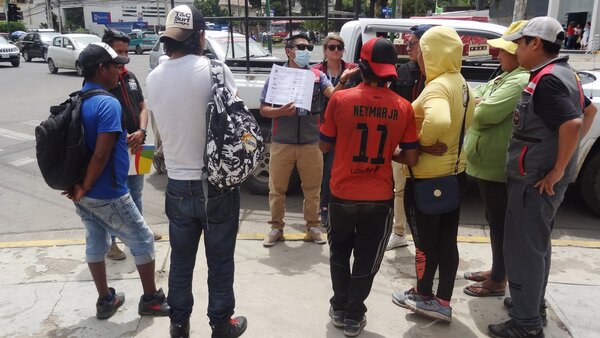
Comundo Les régions où sont engagés les coopérant·e·s de Comundo sont également touchées par la crise du coronavirus. Que cela signifie-t-il pour ces coopérant·e·s et pour nos projets ? Et qu'en est-il pour les personnes intéressées à s'engager ? Quelles mesures Comundo prend-elle dans cette situation exceptionnelle. Page d'info sur le sujet. (Photo: Cochabamba, Bolivie : Lisa Macconi, coopérante de Comundo, et un membre de la "Fundación Estrellas e la calle", transmettent des informations sur le Coronavirus à un groupe de sans-abri.16.3. 20, Comundo)
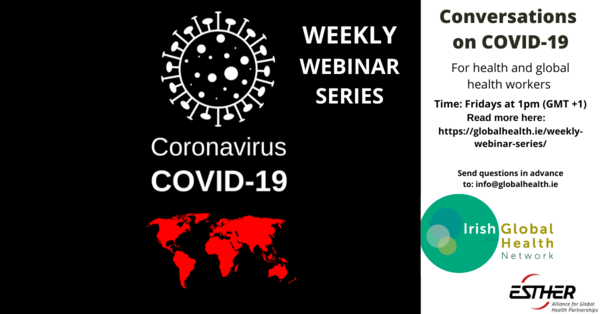
Webinars series by Irish Global Health Network and ESTHER Alliance for Global Health Partnerships
ESTHER Switzerland This series of webinars will focus on healthcare professionals and overseas staff working in Global Health in the era of COVID-19. These webinars will be held each Friday and we will host experts to discuss several COVID-19 topics that concern health professionals working in global health. There will be a questions and answers session with attendees to conclude the webinar, please send us your questions in advance to: info@esther.ie Zeit: 1. Mai. 2020 01:00 PM; 8. Mai. 2020 01:00 PM; 15. Mai. 2020 01:00 PM; 22. Mai.2020 01:00 PM; 29. Mai. 2020 01:00 PM. Zeit angezeigt in Dublin.
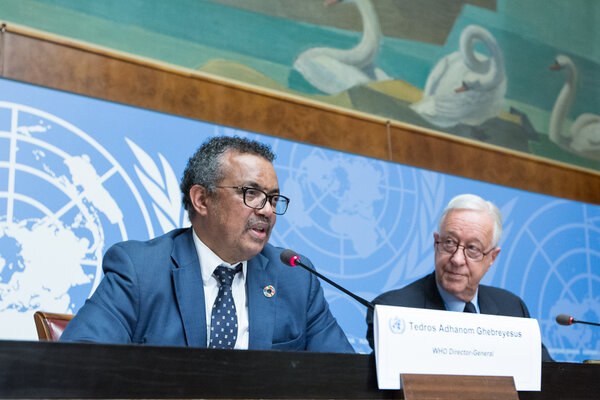
WHO Interim guidance
World Health Organisation (WHO) "When health systems are overwhelmed, both direct mortality from an outbreak and indirect mortality from vaccine-preventable and treatable conditions increase dramatically. Countries will need to make difficult decisions to balance the demands of responding directly to COVID-19, while simultaneously engaging in strategic planning and coordinated action to maintain essential health service delivery, mitigating the risk of system collapse. This document expands on the content of the Operational planning guidelines to support country preparedness and response, and provides guidance on a set of targeted immediate actions that countries should consider at national, regional, and local level to reorganize and maintain access to high-quality essential health services for all." (Photo: UN Geneva/flickr, CC BY-NC-ND 2.0)
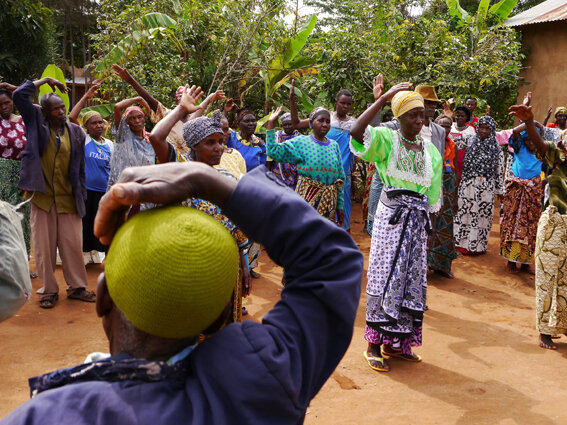
Help Age International "This document provides guidance and advice for care homes about coronavirus, or COVID-19. While older people in care homes are particularly vulnerable to COVID-19, there are steps that can be taken to reduce their risk, and to ensure they are well cared for and supported. Care home staff must also be looked after and must be equipped with information to protect themselves as well as those in their care. The document includes information on personal behaviour, action to take inside the care home, interaction with the outside environment, management responsibilities, governance, and what to do if someone has COVID-19." (Photo: Katja Busch / Kwa Wazee)

World Health Organisation (WHO) "All countries should increase their level of preparedness, alert and response to identify, manage and care for new cases of COVID-19. Countries should prepare to respond to different public health scenarios, recognizing that there is no one-size-fits-all approach to managing cases and outbreaks of COVID-19. Each country should assess its risk and rapidly implement the necessary measures at the appropriate scale to reduce both COVID-19 transmission and economic, public and social impacts." (Photo: UN Geneva/flickr, CC BY-NC-ND 2.0)

Interim guidance
World Health Organisation (WHO) "This rapid advice has been updated with the latest information and is intended to guide public health and infection prevention and control (IPC) professionals, health care managers and health care workers (HCWs) when addressing issues related to home care for patients with suspected COVID-19 who present with mild symptoms and when managing their contacts." (Photo: UN Geneva/flickr, CC BY-NC-ND 2.0)

People´s Health Movement This page is a collection of statements and articles that have been prepared by PHM, its regional and country circles and also like minded civil society organisations on the issues around the ongoing pandemic of coronavirus disease 2019 (COVID-19).